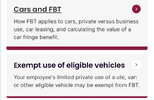- Joined
- 8 June 2008
- Posts
- 13,580
- Reactions
- 20,188
Our of this slightly out of subject outburst, an interesting pointAnd we are buying fighter jets and billions of submarines..so sad
If we have no more fuel: blocus, strikes etc,
How long will we get the grid on..and so EVs charged
Remove coal and diesel from the grid supply, then slowly maintenance and gas out for the trucks and utes of the supply line.
I would guess in 2 months, power is out at least 50% of the time..we might get power thanks to solar during daytime?
Let 's not pretend that having an EV remove the need for oil supply in the next 2 decades at least.
And not forgetting boats, lithium mining to carry imports etc
EVs or hydrogen/Syngas is at least a multi decades transition if not more for australia





